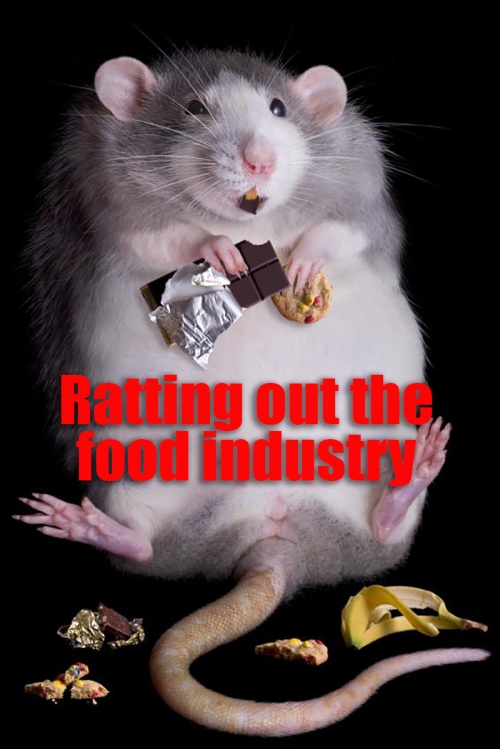 Business Insider recently showed how sugar is becoming the #1 culprit (ahead of fatty foods) behind the current weight gain epidemic. Naturally.
Business Insider recently showed how sugar is becoming the #1 culprit (ahead of fatty foods) behind the current weight gain epidemic. Naturally.
So concerned diet experts are targeting sugar consumption. Unfortunately sugar already has been targeting you — usually with great success.
If you feel your own powerlessness, you’re not alone. Like starting a fitness routine, there are right ways and wrong ways to start a sugar-reduction plan.
Today. Right now.
Ready?
Here’s seven tips to slay sugar:
1. Your stomach doesn’t really care. Your brain does. Find alternative rewards for your brain: Sugar fires off dopamine production in your brain, a key component of addiction. Unlike a balanced meal (which can also trigger dopamine but tapers off if repeated), sugar keeps flooding the brain with warm fuzzies. It is this overactive reward system that creates craving.
Suggestion: Source the pleasure hormone elsewhere:
- Consume large quantities of meat and other proteins, specifically Tyrosine which can be found in almonds, avocados, bananas, chocolate, coffee, eggs, green tea and watermelon.
- Eat yogurt, kimchee, pickles, some cheeses or other foods rich in probiotics.
- Get enough sleep.
- Enjoy music.
- Meditate.
- Get sunlight.
- Consider supplements as curcumin, ginkgo biloba, L-theanine, acetyl-l-tyrosine
- Get a massage. Hug your family. Get a pet.
- Learn something new. Make new discoveries. Develop and satisfy your curiosity.
- Divide your duties into small tasks and check them off as you go. A sense of accomplishment releases dopamine.
Other reward hormones: Other feel-good hormones also provide potent sugar substitutes:
- Endorphins — from significant exercise. Go to the gym.
- Serotonin — from feeling significant or important. Socialize.
- Oxytocin — from feeling cherished, cuddled, intimate or trusted. Get support from family and friends. Cultivate relationships.
- Adrenaline — from fear or competition. Ride a roller coaster, make a high risk investment, or watch a horror movie.
2. Rewire your brain. Neurobiologists are changing the way we see human weakness (addiction). A bad habit is not simply dusted away — or ridiculed by the strong. It’s actually rooted in your brain. It turns out that there are neural highways in your gray matter. The more you reinforce any behavior, the more electro-chemical pulses are fired along certain pathways. Dendrites are even added to the most used thoroughfares, and pulses are sped up.
Yikes! your brain literally aids and abets your addiction.
To forge a new path is to head off through brambles and crawlers; it will be slow go. You’re off the beaten path, so the walking is not easy. This is not only bad news because it’s not impossible, just hard. You can “re-wire” your brain, but you need to be realistic. It might takes weeks, months, even years.
Suggestion: Journal your progress. Set small goals towards a larger objective. Don’t be discouraged by setbacks. If you “fall off the wagon,” get back immediately. Get a empathetic support group or accountability partner. Repetition is the key to forming both bad and good habits, so try to steer clear of sugar over and over.
3. Identify negative emotions. There’s a reason why they’re called “comfort foods.” The are a happy-reset button. What are the emotional storm clouds you escape from? Here are a few common factors inducing sugar addiction:
- Stress — The inability to handle stress well is ripe fruit for escapism.
- Fear/ anxiety — Ditto above.
- Boredom — The dull lulls of life make you want to zest up your life with some tasty morsels.
- Loneliness — Social isolation, anxiety and rejection bring a heavy emotional cost.
- Frustration — Failure and setbacks bring depression, from which you naturally want to take a break.
Suggestions: Developing strategies for these and other negative emotions may require some outside help from a trusted counselor. You might get inspiration from a good book or some motivational videos on YouTube. Journaling can help you analyze, dissect and give you the objectivity to overcome these. Get a hobby, take up gaming, learn a new language or play the guitar. Read the four other tips for cutting sugar without stress.
 Mr. Mustard Seed is selling 10″ bamboo steamers on Amazon as a way to help the health habit. Profits go to his ministry.
Mr. Mustard Seed is selling 10″ bamboo steamers on Amazon as a way to help the health habit. Profits go to his ministry.
 Nowadays, sabre tooth tigers, Black Plague or invading mongols are not a threat. No, your problems are worse- bills, deadlines, domestic friction, rejection, loneliness, competition, low self esteem, weight gain, sickness. Plus, the world is coming to an end (again)
Nowadays, sabre tooth tigers, Black Plague or invading mongols are not a threat. No, your problems are worse- bills, deadlines, domestic friction, rejection, loneliness, competition, low self esteem, weight gain, sickness. Plus, the world is coming to an end (again)
 So the food industry only provides what people want. Right? And people want, time after time, what they crave. So sugar is sinking America’s health.
So the food industry only provides what people want. Right? And people want, time after time, what they crave. So sugar is sinking America’s health. Business Insider recently
Business Insider recently  Mr. Mustard Seed is selling
Mr. Mustard Seed is selling 
